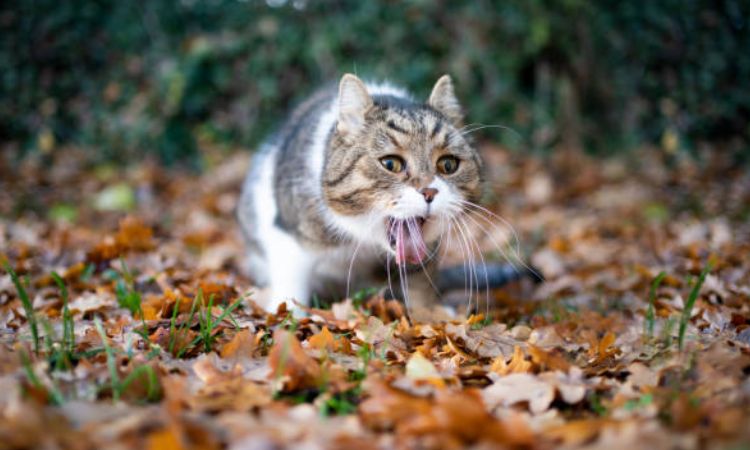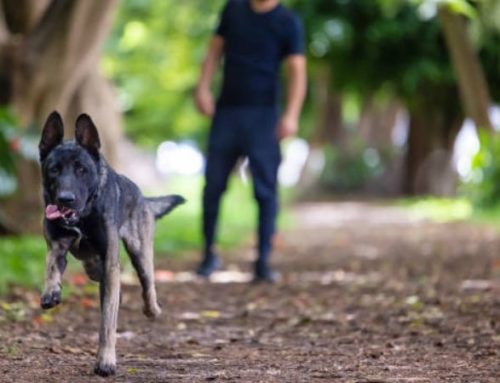Accidents happen, and curious cats can sometimes get into things they shouldn’t—household plants, cleaning products, or other potentially harmful items. When this occurs, one way to help your feline friend is by safely triggering vomiting to remove the harmful substance from their stomach before it causes serious harm.
In this guide, Nexus-Pets will walk you through how to approach this process carefully, ensuring your cat stays as safe and comfortable as possible while you act quickly to protect their health.

When Is Inducing Vomiting Necessary?
Inducing vomiting in cats is only warranted in specific situations where rapid intervention can prevent serious harm. It is most commonly considered when a cat has ingested substances that are toxic or potentially life-threatening.
Common Scenarios Include:
- Toxic Foods: Chocolate, onions, garlic, grapes, raisins, or any food harmful to feline health.
- Dangerous Plants: Lilies, poinsettias, and other houseplants known to be poisonous to cats.
- Medications: Human or veterinary drugs that are not intended for cats, including over-the-counter painkillers or prescription medications.
- Household Chemicals: Cleaning products, detergents, antifreeze, or other chemicals that can cause organ damage or poisoning.
Why Quick Action Matters: Time is critical. The effectiveness of inducing vomiting sharply decreases after 1–2 hours, as the stomach may have already emptied its contents into the intestines. Acting promptly under veterinary guidance can significantly reduce the absorption of toxins into the bloodstream and potentially save the cat’s life.
Inducing vomiting should only be done when a toxic or harmful substance has been ingested, and always under the guidance of a veterinarian. Acting quickly, documenting what was ingested, and contacting your vet immediately are essential steps to ensure your cat’s safety.
When NOT to Induce Vomiting
While inducing vomiting may seem like an urgent solution after a cat ingests something harmful, there are critical situations where doing so can be extremely dangerous. Attempting to make your cat vomit in these cases can worsen the injury or create life-threatening complications. Always consult a veterinarian immediately instead of acting on your own.
Do NOT induce vomiting if your cat has ingested:
- Corrosive substances such as bleach, household cleaners, or batteries. Vomiting these chemicals can severely burn the mouth, throat, and esophagus.
- Sharp objects like needles, pins, or bones. Bringing these back up can puncture or lacerate the gastrointestinal tract.
- Large amounts of toxic medications or human drugs without veterinary guidance, as some substances are absorbed too quickly for vomiting to be safe.
Do NOT induce vomiting if your cat is:
- Unconscious, lethargic, or extremely weak. The risk of aspiration or choking is high.
- Having seizures or difficulty breathing, which can be aggravated by vomiting.
Timing matters:
- If more than 2–3 hours have passed since ingestion, vomiting is often ineffective and may cause additional harm. The substance may already be absorbed or passed into the intestines, making emesis dangerous rather than helpful.
Veterinary professionals emphasize that attempting to induce vomiting in these situations can turn a manageable emergency into a life-threatening one. Always seek immediate guidance from a veterinarian or the ASPCA Animal Poison Control Center before taking any action.
Step-by-Step: What to Do If Your Cat Eats Something Dangerous

Stay Calm and Limit Exposure
The first step is to remain composed. Panicking can make it harder to act efficiently. Remove your cat from the area where the toxic substance is located and ensure there’s no further access to it. This helps prevent additional ingestion and reduces the risk of spreading the toxin throughout the house.
Contact a Professional Immediately
Call your veterinarian without delay, or reach out to an animal poison control center such as the ASPCA Animal Poison Control Center at (888) 426-4435. Quick communication with professionals is crucial because some toxins require immediate intervention, and incorrect home remedies could make the situation more dangerous.
Provide Detailed Information
When speaking with the veterinarian or poison control specialist, give precise and complete information. Include:
- The exact substance ingested — whether it’s a household chemical, human medication, plant, or certain foods.
- The amount consumed — even a small quantity can be critical for certain toxins.
- Time of ingestion — knowing how long ago it happened helps determine urgency.
- Your cat’s age, weight, and general health status — this assists the vet in calculating safe treatment options and anticipating potential complications.
Follow Only the Instructions Given by the Vet
Do not attempt any treatments or induce vomiting on your own unless specifically instructed. Some substances, like corrosive chemicals or sharp objects, can cause more harm if vomited. Following professional guidance ensures your cat receives the safest and most effective care.
Transport Your Cat to the Vet if Instructed
If the veterinarian advises, prepare to take your cat to the clinic immediately. Bring along any packaging, labels, or information regarding the ingested substance. This allows the veterinary team to identify the toxin and implement appropriate treatments quickly, improving the chances of a full recovery.

Dangerous Home “Remedies” to Avoid
Hydrogen Peroxide While sometimes used under veterinary supervision for dogs, hydrogen peroxide is unsafe for cats. It can irritate the stomach and esophagus, trigger gastritis or ulcers, and cause serious complications.
Salt, Mustard, and Ipecac Syrup – Common household items like salt, mustard, and Ipecac syrup are toxic to cats. Salt can cause seizures or hypernatremia, Ipecac can lead to dangerous heart and breathing issues, and mustard irritates the digestive tract without providing any benefit.
Online Myths and DIY Solutions – Many “home remedies” circulating online are misleading and potentially harmful. Methods such as gagging the cat, feeding oils, or using human foods can fail to induce vomiting and may cause aspiration, poisoning, or injury.
Takeaway – Never attempt at-home remedies. Always contact a veterinarian or an animal poison control hotline for safe, effective guidance when your cat ingests something harmful.
You may be interested in:
- Senior Cat Diarrhea and Vomiting: Causes, Home Remedies, and When to Worry
- Home remedy for cat vomiting and diarrhea
- Why Is Your Cat Vomiting Brown Liquid? A Vet’s Guide
Knowing how to react when your cat has eaten something they shouldn’t is crucial, but remember, your first call should always be to a veterinarian or a pet poison helpline. This guide is meant to be a helpful resource for emergency situations, but it should never replace professional veterinary advice. Always prioritize your cat’s safety by seeking expert guidance.






